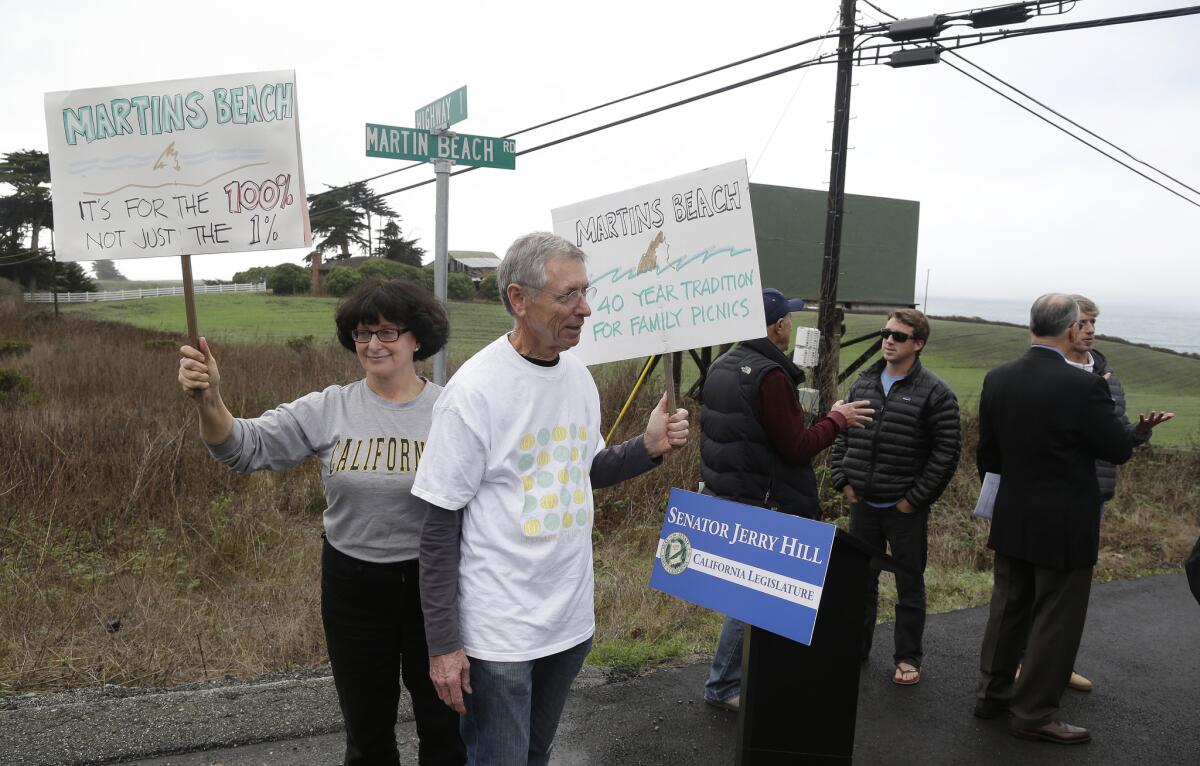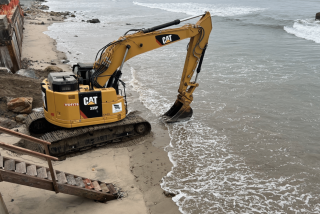Billionaire ordered to unlock Martin’s Beach but won’t be fined $20 million

- Share via
It was surfers versus a Silicon Valley tech billionaire, and on Wednesday, the surfers won -- for now.
A San Mateo County judge ruled tentatively Wednesday that Vinod Khosla, a co-founder of Sun Microsystems, had wrongly denied public access to Martin’s Beach, which for decades was visited by thousands of locals who picnicked, surfed and fished in its protective cove.
The case resonated with some people because it reflected fears that tech billionaires were buying up coastal properties with the intention of keeping others out.
Joe Cotchett, an attorney for the nonprofit Surfrider Foundation, which brought the suit, called Superior Court Judge Barbara Mallach’s decision “a huge victory for all of the people of California.”
“This is a battle of David versus Goliath,” Cotchett said, “between the people who want to use the beaches and the wealthy who want it for their own private purposes.”
The previous owners granted beachgoers their only way to the beach by land, via a dirt road, and charged a small fee for parking. But in 2010, two years after Khosla acquired the property, his manager locked the gate, painted over a sign that had beckoned from California Highway 1 and posted security guards to ward off trespassers.
Khosla did so despite being told by county planning officials, the Coastal Commission and a different San Mateo County Superior Court in 2009 that he needed to seek a coastal development permit if any of his actions were to change the “intensity of use” of the water or access to it.
Mallach ruled that by padlocking the gate, hiring security guards and altering signs without state permission, Khosla had wrongly denied public access to the beach, violating the California Coastal Act.
Mallach, however, did not impose about $20 million in fines that the nonprofit Surfrider Foundation had been seeking -- a total based on the maximum of $15,000 a day dating to the October 2010 gate closure.
Regardless, Angela Howe, legal director for the Surfrider Foundation, said the judge’s order means Kholsa must immediately “cease preventing public access to the coast.”
But the case may not be over.
Dori Yob, a lawyer for Khosla, said in an email: “We are disappointed with the court’s decision and will consider our options for appealing the ruling.”
Staff writer Lee Romney contributed to this report.
Follow the reporter on Twitter: @amcovarrubias
More to Read
Sign up for Essential California
The most important California stories and recommendations in your inbox every morning.
You may occasionally receive promotional content from the Los Angeles Times.














